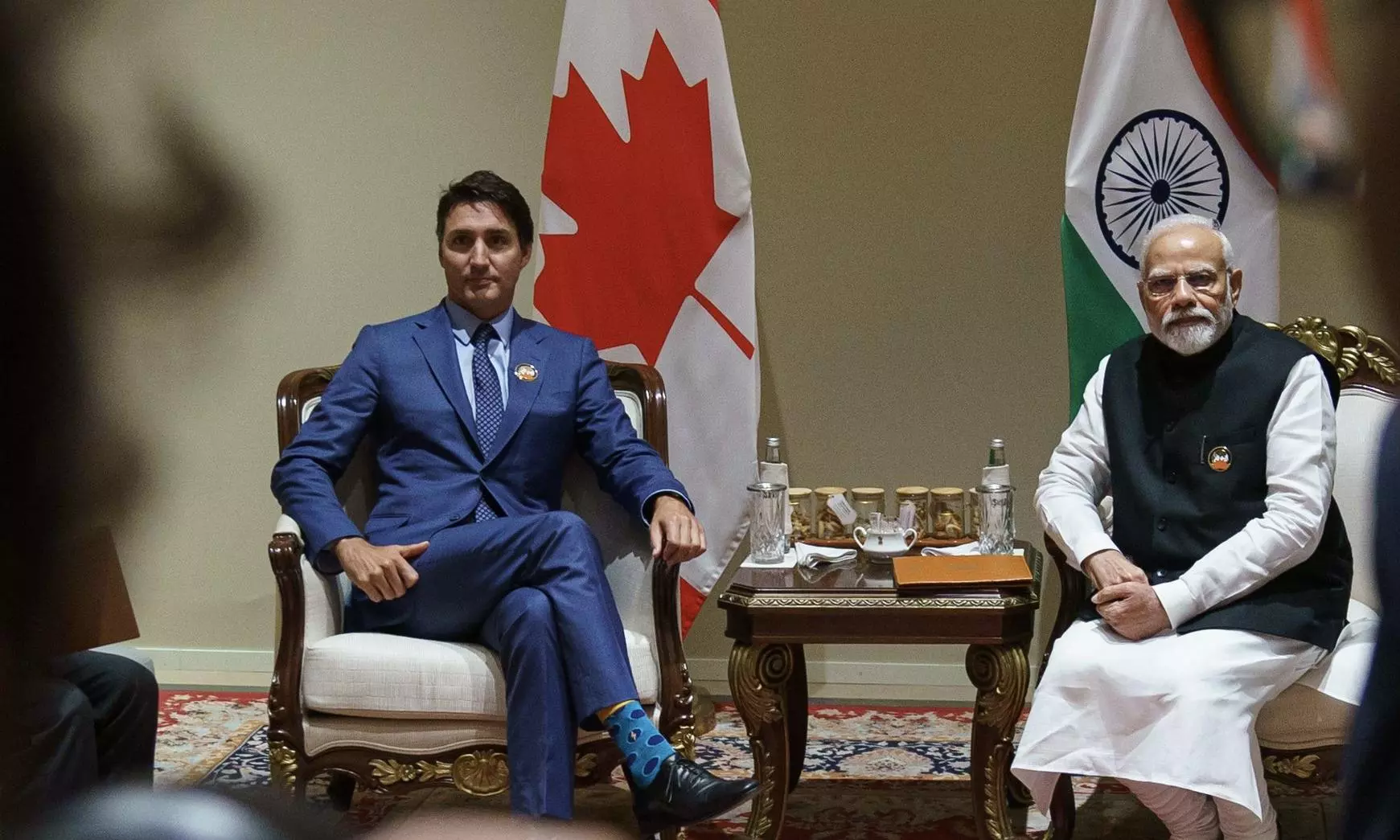
Diplomatic hiccups unlikely to hit India-Canada economic relations
Experts say bilateral trade between Canada and India is completely driven by commercial considerations and political turmoil will only be of a temporary nature and not affect trade relations

The tense diplomatic ties between India and Canada are unlikely to derail trade and investments between the two countries as commercial factors drive economic relations, say experts.
India on Tuesday (September 19) announced the expulsion of a Canadian diplomat, hours after Canada asked an Indian official to leave that country, citing a "potential" Indian link to the killing of a Khalistani leader in June.
Experts said both India and Canada trade in complementary products and do not compete on similar products.
"Hence, the trade relationship will continue to grow and not be affected by day-to-day events," Global Trade Research Initiative (GTRI) co-founder Ajay Srivastava said.
Mumbai-based exporter and chairman of Technocraft Industries Sharad Kumar Saraf said the present frosty relations between India and Canada raises concern.
"However, the bilateral trade is entirely driven by commercial considerations. Political turmoil is of a temporary nature and should not be a reason to affect trade relations," he said.
Sino-Indian ties
Saraf added that even with China, India has acrimonious relations but bilateral trade remains healthy.
"In fact, bilateral trade is an effective tool to improve political relations. India must make special efforts to increase our bilateral trade with Canada," he said.
Some political developments have led to a pause in negotiations for a free trade agreement between the two countries.
On September 10, Prime Minister Narendra Modi complained to his Canadian counterpart Justin Trudeau India's strong concerns about the anti-India activities of extremist elements in Canada.
These, Modi said, were promoting secessionism, inciting violence against its diplomats and threatening the Indian community in Canada.
Srivastava said these recent events are unlikely to affect the deep-rooted people-to-people connections, trade, and economic ties between the two nations.
Growth in trade between India andTrade between India and Canada has grown significantly in recent years, reaching US$ 8.16 billion in 2022-23.
India's exports (US$ 4.1 billion) to Canada include pharmaceuticals, gems and jewellery, textiles and machinery, while Canada's exports to India (US$ 4.06 billion) include pulses, timber, pulp and paper as well as mining products.
Canadian Pension funds
Experts said Canadian pension funds will continue investing in India on grounds of India's large market and good return on money invested.
Canadian pension funds, by the end of 2022, had invested over US$ 45 billion in India, making it the fourth-largest recipient of Canadian FDI in the world.
The top sectors for Canadian pension fund investment in India include infrastructure, renewable energy, technology and financial services.
There are also over 200 educational partnerships between Indian and Canadian institutions.
In addition, some 319,000 Indian students are enrolled in Canadian institutions -- the largest international student cohort in Canada.
According to the Canadian Bureau for International Education (CBIE), Indian students contributed US$ 4.9 billion to the Canadian economy in 2021.
(With agency inputs)

